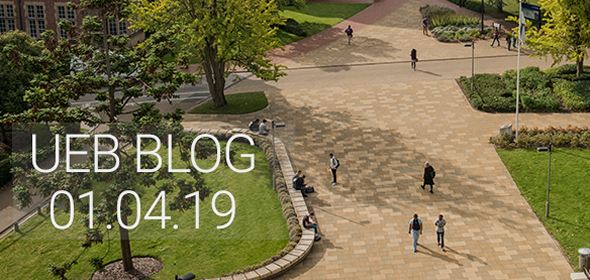Author: Shaun Williams, Executive Director of Engagement and Advancement
This week’s UEB meeting was one of the monthly dedicated 10-Year Plan UEB meetings, which are chaired by Professor Mandy Fader in her capacity as Pro Vice-Chancellor for the 10-Year Plan. These meetings are focused on monitoring and driving progress on our transformational 10-Year Plan projects, as well as considering concept papers and business cases for potential new projects.
Each stage of the process is in effect a ’gateway’: at each stage an informed decision is made about whether to progress a project idea further, based on its alignment with the University Strategy, and its affordability. Some ideas are paused or rejected at initial concept phase; some can be at business case stage. So, a green light at concept stage simply means that permission has been given to progress to a full business case, where a similar ’gateway’ go/no go approach is taken.

The challenge, of course, is that although we have no shortage of smart and transformational proposals around at the moment, the ability to fund and resource them all is very limited, and we know from experience that taking on too much simultaneous change can be hard for us to deliver successfully, and can put huge pressure on particular teams who have to be involved in every project. We face a big issue around prioritisation.
So a busy agenda today including four different transformation project concept papers, each requesting initial resources to progress the ideas towards a more developed, evidence-based business case. These included:
- Kieron Broadhead, Executive Director of Student Experience, joined to explain the idea of a One-Stop Shop to improve the student experience by reducing the complexity of engaging with the University, so students can access core support at any service point, regardless of faculty, programme or level of study, and through improvement in online and self-service support. The intention would be for 80 per cent of student enquiries to be dealt with at the first single point of contact. UEB supported progressing this to a full business case.
- Kieron was joined by Anna O’Neill, Director of Library Services & Arts Strategy, to explain The Next Chapter for Library and Learning Resources. This would involve a review of our physical and digital library and learning resources across all our campuses to ensure they are fully working for our students, recognising their critical importance to the student experience at Southampton, and that, as a world-class University, our library and learning resources need to be world-class too. UEB were fully supportive, and urged the team to think ambitiously.
- Managing Brexit: Risk and Mitigation: there has already been a lot of activity across the University looking at the longer-term impact for us once the UK has fully left the EU, including a dedicated Task Force chaired by Ian Dunn focused on No-Deal implications. This proposal, outlined at the meeting by Charlene Allen, Director of Student Recruitment & International Relations, aims to bring together the various strands of activity under one Working Group, focused particularly on staff, Erasmus+, Horizon 2020, and the longer-term financial, operational, strategic and reputational impact of Brexit. Although not strictly a 10-Year Plan project, the unpredictability of Brexit has meant that we must ensure that plans are in place and risks are considered across the University. This was fully supported by UEB’s members, who are deeply concerned about the continuing impact of Brexit uncertainty on staff and students from the EU.
- CRM system: we currently have nine different CRM (Customer Relationship Management) systems across the University, along with a proliferation of numerous spreadsheets and small databases, which can lead to multiple but different versions of the same data, and some systems not able to ’talk’ to each other. As part of the 10-Year Plan ICT Transformation work-stream, this project would create a common university CRM platform covering the whole journey that a student follows with us, from the moment they apply through to their graduation and future alumni journey, in a fully consistent way. Again, UEB supported moving to the next phase and a full business case.
- Finally, a modest request for funding was approved for a pilot survey of prospective students on the level of curriculum choice they find desirable, to help inform a future Reducing Curriculum Complexity project, for which the concept has already been approved.
So in all five cases, limited resource will be provided from the 10-Year Plan budget to progress these concepts to more developed, and evidenced, business cases. We can expect to hear more on each in a few months’ time.
Each month, in the ’Driving and Monitoring the Portfolio’, section of the agenda, there is a rotated update on live projects and work-streams, usually given by the Programme or Project Sponsor.
This week, there was an update by John Kness, Director of Faculty Operations, on the FOS – Optimising support for Faculties project, which is focusing on how we can ensure optimum and equitable provision of service across the University, following the recent faculty restructure.
Then an update from me on the Engagement workstream, which includes three 10-Year Plan Projects – OneWeb; the Campaign for Southampton, our future £100m fundraising campaign; and an emerging project around our brand and reputation: University Global Brand.
Finally, an update from Professor Rachel Mills, who chairs the Estates Programmes Board. The formerly separate Capital Programmes Board has now been brought into the governance framework of the 10-Year Plan to ensure that all our transformational projects can be considered together.
Further details and updates on 10-Year Plan projects can be found in our regular monthly Strategy Pulse updates, published on SUSSED News.